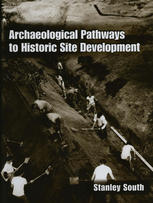

Most ebook files are in PDF format, so you can easily read them using various software such as Foxit Reader or directly on the Google Chrome browser.
Some ebook files are released by publishers in other formats such as .awz, .mobi, .epub, .fb2, etc. You may need to install specific software to read these formats on mobile/PC, such as Calibre.
Please read the tutorial at this link: https://ebookbell.com/faq
We offer FREE conversion to the popular formats you request; however, this may take some time. Therefore, right after payment, please email us, and we will try to provide the service as quickly as possible.
For some exceptional file formats or broken links (if any), please refrain from opening any disputes. Instead, email us first, and we will try to assist within a maximum of 6 hours.
EbookBell Team

5.0
20 reviewsIn this book I walk with the reader along the bothered me that some of my colleagues, in their archaeological pathways traveled by many reports of archaeological activity on documented researchers in the process of historic site historic sites, never mention finding evidence of previous American Indian occupation. Sites development. The sponsors, historians, archaeologists, and administrators who have selected by Europeans, usually on high ground bordering the deep water channel of navigatable traveled those pathways may find familiar much of what I say here. The pathways exploring the past streams, are those also once preferred by Native Americans for the access to environmental involve research in documents and the archaeological record, using the best methods of resources they afford. How could Native both, in an attempt to understand the material American material culture not be present on such culture remains left behind, not only by explorers sites? and colonists from Europe and Africa, but also by I once asked a well-known archaeological Native Americans who lived in the environment for colleague why it was that such evidence did not appear in his reports from such sites, and the reply millenia before those strangers appeared on the scene. In explaining the archaeological record of was, "Gh, I find all kinds of Indian things on the American Indians I lean on not only archaeological historic sites I dig, but that's not why I'm there.